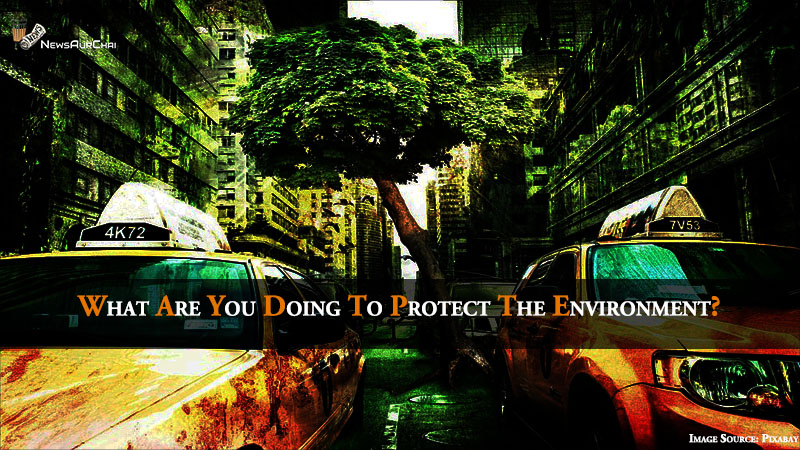
Whenever I hear or read the term Environment, the only thing that comes to my mind is ‘the undivided entity’. Yes, you read it right! We can divide the land, assets, forests and whatnot. However, can you divide the environment? Can you create a boundary and say that the wind blowing over my head cannot be yours? Can you say that you will not let the rainfall in your country affect your neighbouring country? Well, you simply cannot, and this makes environmental problems, a global concern.
Environmental Degradation
Global concern requires global attention. The most recent UN’s report on climate change is warning us that icebergs are melting at a faster pace now due to rising temperatures. The atmosphere is becoming more acidic. The rising temperatures are responsible for the drop in the marine population. It not only affects the ability to harvesting seafood but also the wellbeing of hundreds living in coastal areas. Besides, the warmer ocean waters combined with rising sea levels can fuel up more powerful cyclones and floods. Can anyone of us forget the Hurricane Harvey which devastated Houston, two years ago?
The Special United Nations-affiliated oceans and ice report that there will be a three feet rise of the sea by the end of the century. Moreover, there will be weakening of ocean currents, even less snow and ice, stronger and wetter hurricanes and nastier El Nino weather systems. Not only the oceans but every habitant on earth will be affected by this.
In the realm of land degradation, the earth is already warm by 1.5 degrees. The impact is quite visible in India and around the world, as the extreme drought, forest fires and floods as witnessed. How can we ignore the recent Amazon forest fires, Aarey Forest? and more such. These forests pull carbon dioxide out of the atmosphere as a part of their photosynthesis process. Destruction of forests leads to the release of carbon in the atmosphere. The forests that are protecting us are getting harmed.
N.H Ravindranath, professor, Centre for Sustainable Technologies, Indian Institute of Science, Bangalore said that High levels of land degradation and desertification in western India, especially in Gujarat and Rajasthan could lead to increase in warming levels by 2-3 degrees in mid-20-30s with increased rainfall intensity.
Are we really doing something for our environment?
It cannot be said that we are not doing anything for our Environment at all. We have signed various pacts at the national and international level. The Swachh Bharat Abhiyan launched in 2014 is advancing successfully. Recently our honourable PM Narendra Modi received ‘Global Goalkeeper Award’ for this mission. Also, he has been awarded with the UN’s highest environmental honour ‘Champions of the Earth‘ for his leadership of International solar alliance and pledge to eliminate single-use of plastic in India by 2020. Even the French President, Emmanuel Macron works on Global Pact for the Environment cannot be ignored.
The Cochin International Airport has also been awarded by the UN for entrepreneurial vision, for its leadership in the use of sustainable energy. They claim 100 per cent reliant on renewable energy (solar energy) for their daily operations – from powering the conveyor belts to the digital systems. I think we are doing well in the realm of the environment. Then why the impact of our efforts are not as expected? Why the UN’s recent report is so negative?
Where are we lacking?
We lack at the grass-root level, or I would say at the individual level. Not littering on the road, reducing the use of refrigerators, air conditioners that emit Chlorofloro Carbons, reducing the use of plastic bags will not let you fetch an award for sure. However, it will help you protect this environment of ours.
As an individual, one can do wonders by putting in small efforts. For inspiration, we can always look up at the little girl, Greta Thunberg who convinced her parents to adopt several lifestyle choices to reduce their carbon footprint, including giving up air travel and not eating meat. Greta, a 15 years old girl, is known for her blunt speech both in public and to political leaders asking for immediate action against the climate crisis. She demands a strong effort to protect the earth. Her ‘School Strike for Climate‘ or ‘Friday For Future‘ movement has brought her to the limelight.
Saalumarada Thimmakka is another name which can’t be forgotten. She is an Indian Environmentalist, noted for her work in planting and tending to 385 banyan trees along a four-kilometre stretch of highway between Hulikal and Kudur. She was awarded the ‘Padma Shri Award’ for her dedication towards the environment.
There are many more such known and unknown names who work for the well-being of the earth.
In conclusion, tackling the environment is not the job of a single person or a group of people. The effort of every individual matter ranging from not throwing a plastic wrapper on the road to doing strikes outside government organisation demanding action to protect the environment. The person reading this article can also make a difference today by taking a pledge of avoiding littering on the road and making the best use of dustbins. It’s that simple! Trust me.





